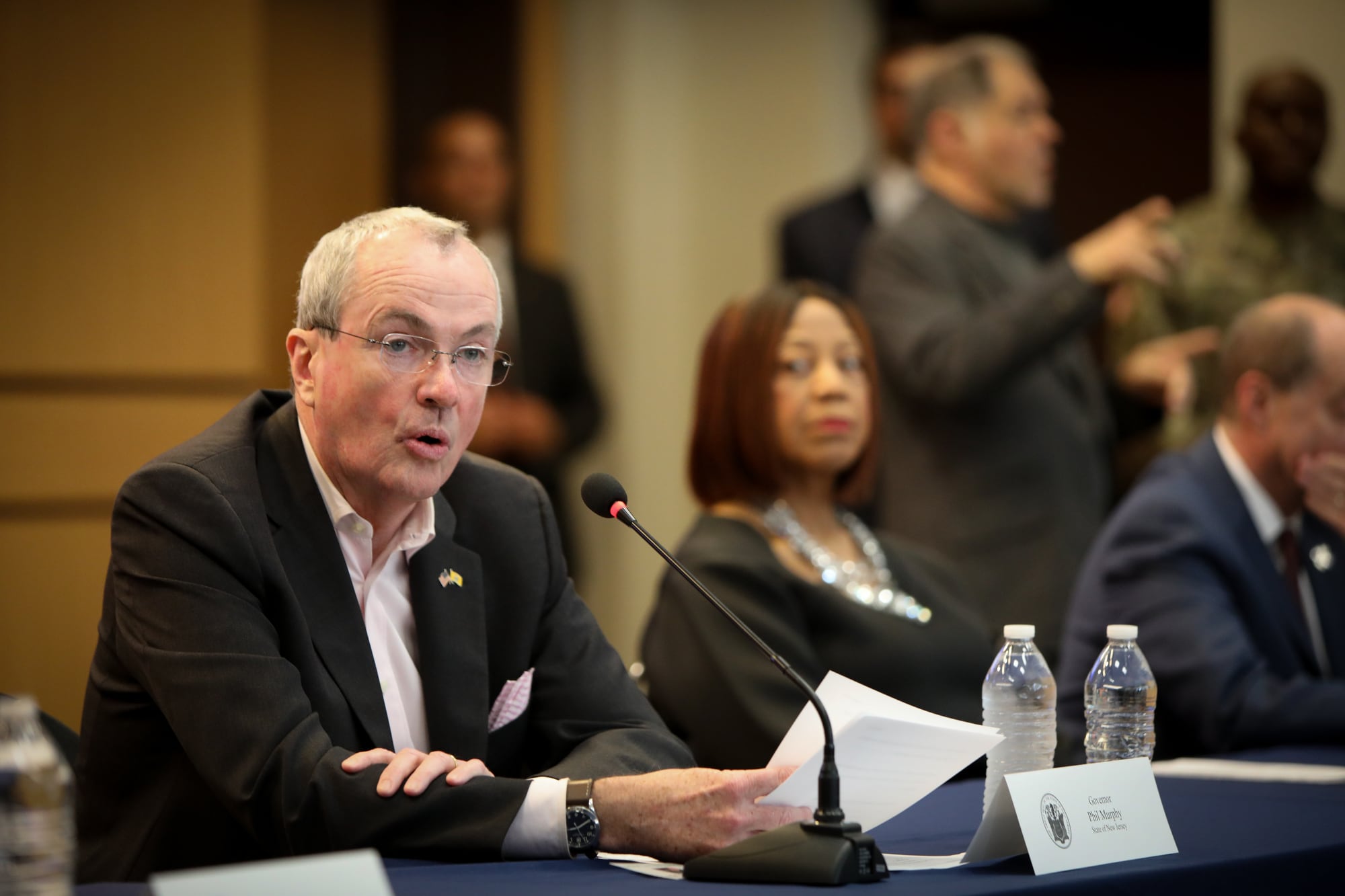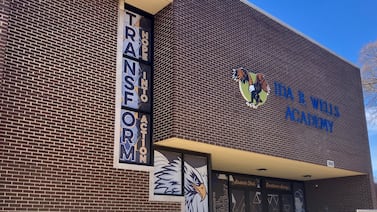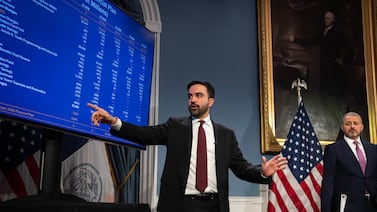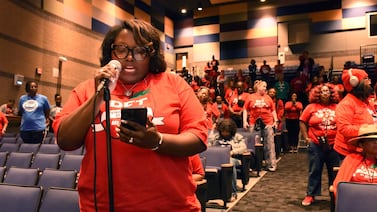Face masks in New Jersey schools will no longer be a statewide mandate starting next month, but as of now, Newark Public Schools’ masking rules will remain in place and families will be notified if there are any changes, the district said Monday.
As new COVID cases and hospitalizations decline from the omicron surge in early January, Gov. Phil Murphy announced Monday the state would be lifting its mask mandate for schools and day care centers beginning March 7. Districts and private child care providers will still have the ability to implement face mask rules in their buildings, the governor said.
“We’re announcing this with plenty of advance notice for our schools and child care settings, for our students and their families, our educators, and support staff, to determine how this will impact them and to finalize any steps they may need to make in preparation,” Murphy said at a news conference in Trenton.
The state Department of Health has not issued any guidance for school districts, but that’s expected to be released in the coming weeks, Murphy said.
State health commissioner Judith Persichilli said school districts should work with local health departments to determine whether to keep mask mandates in their buildings.
“I must thank the overwhelming majority of students, parents, administrators, educators, and support staffers who stood tall as role models ever since our schools returned to in-person instruction by wearing your masks day in and day out without problem or protest,” Murphy said.
Newark’s safe return plan requires face masks in all school buildings and vehicles with limited exemptions.
“The mask is a part of the district’s protocols and we will notify families of any changes,” a district spokesperson said in a statement.
Murphy is not alone in this decision. Delaware also announced its school mask mandate will be lifted by the end of March and Pennsylvania’s mandate for K-12 schools ended last month.
“This is a huge step back to normalcy for our kids,” Murphy said.
Though new COVID cases have taken a plunge, the vaccination rate among children remains low in the state. Only 1 in 3 New Jersey children ages 5 to 11 have received at least one shot of the vaccine, NorthJersey.com reported this week. Nationally, the vaccination rate among children also remains low.
In Newark Public Schools, roughly 18% of students have reported receiving the vaccine, according to the district. However, that number could be an undercount as it only includes students who have reported their vaccination status to the district.
Mayor Ras Baraka said Monday that 27% of 5- to 11-year-olds in Newark have gotten at least one vaccine dose along with 76% of 12- to 17-year-olds.
The district has a weekly COVID testing program for students and staff, though only 13,454 students — or 35% of the student population — have opted into the program.
Patrick Wall contributed to this story.






